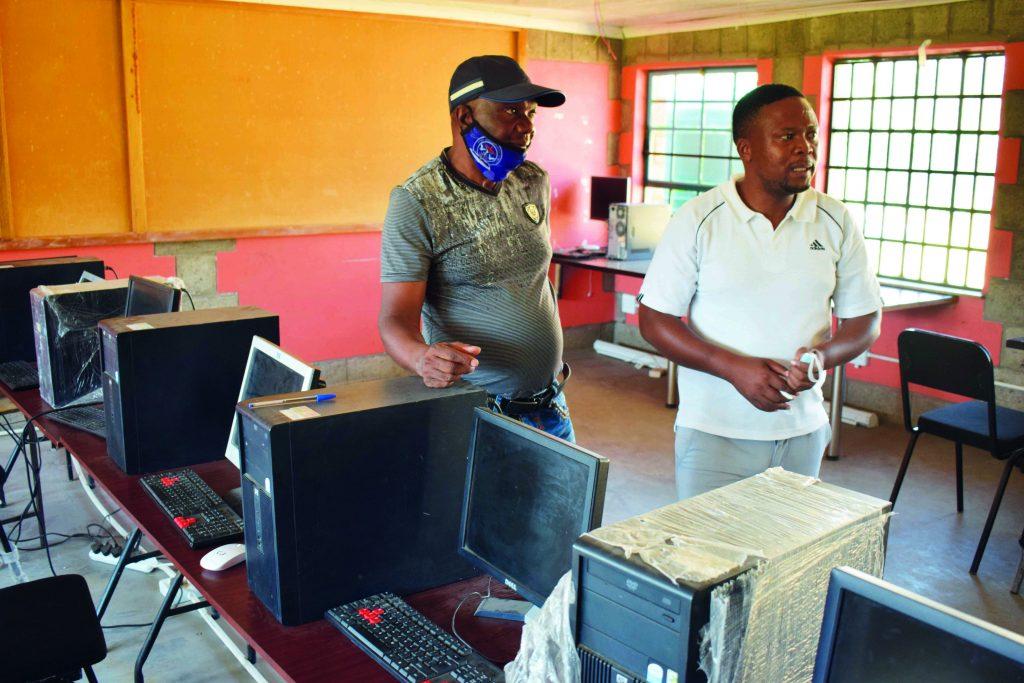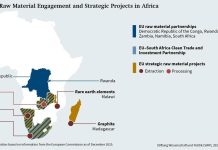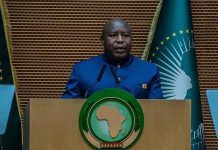Africa-Press – Lesotho. ON the foot of the majestic Thaba-Phatšoa mountain in Mahobong, about 120km north of Maseru lies Thaba- Phats’oa LECSA Primary School. The school was built in 1885 by the Lesotho Evangelical Church in Southern Africa as part of the church’s evangelism programme.
Thaba-Phatšoa Primary School looks like any other rural school. There is also a church hall next to the school. In its effort to provide education to the community, the LECSA appears to have never forgotten its primary mission – to evangelise and “win souls for the Lord” in areas it operates.
And so, the church and the education system were intricately interwoven. An old church bell, hangs on a tower. In its heyday, the bell would summon the community for church services.
Thousands of students have walked through the hallowed school gate since it was set up in the 1880s. They were to leave at the end of seven years of learning, some to never set foot at the school again.
For businessman and cleric, David Ramela, that was never the case. The man has never forgotten his roots. In the early 1970s, Ramela was a student here when life was brutal.
In the wintry mornings, he too would walk for kilometres to get to school. It was a tough upbringing that prepared him for what was to come in life. Having experienced such a tough life, Ramela is committed to making things much easier for the younger generation.
That is why he is sparing no efforts in giving back to the community which helped him become the “giant” that he has become in business. Thanks to Ramela, the school now has a sprawling multi-purpose hall which accommodates 600 people at a time.
Instead of Ramela dipping his hands into his pocket and provide cash to the school every time there is a need, the school can now rent out the hall for community events such as weddings at a fee.
Sometimes the community meets in the hall when there are urgent issues to discuss. But apart from the hall, Ramela has also bought state-of-the-art computers for the school.
The decision to buy the computers has been transformational for the school. The computer lab is now having a great impact on learning at Thaba-Phatšoa Primary School.
The computers have been a “game-changer”, according to Leah Mashapha, the 62-year-old school principal. Mashapha says most of the pupils at the school come from extremely disadvantaged backgrounds.
Most of the students have to cross rivers to get to school when it rains. Some have to climb mountains and pass through dangerous dongas where thugs often lurk.
When the rivers are in flood, some can’t make it to school. Some walk a distance of five kilometres to and from school. Most of the children are vulnerable; and without any form of support, they could be doomed to a life of penury.
It is against this background that Ramela’s intervention should be seen. When Ramela bought the computers, some children had no idea how it looked, let alone what it does.
“They thought it was a television set,” Mashapha says, laughing. And when they were first exposed to how computers work, they were mesmerized. “Our teaching and learning process has become much easier.
The students are able to see and use computers in real life rather than learn through theory,” Mashapa says. The concept of seeing and how it helps in the learning process has been true in their case, with Mashapha citing the well-known pedagogical maxim, “I hear, I forget.
I see, I remember. ” The impact of the use of computer technology in the classroom has been amazing, she says. Refiloe Tšehlana, who is the school’s deputy principal, says he has seen first-hand the transformative power of technology in the learning process.
“Our performance has drastically improved. The students are now able to express themselves better when it comes to computer-based questions,” he says.
The computer lab, with its 20 state-of-the-art gadgets, looks out of place in a rural setting. To power the computers, Ramela had to install electricity at the school.
Tšehlana says Ramela’s story of boundless generosity has been inspiring. “The young ones say he is our hero,” he says. “He has done so much for the community and most are learning that it is possible to achieve your dreams only if you work hard.
” Despite Ramela’s heroic efforts, there are still challenges. Tšehlana says they would want to see new toilets built for the children to restore their dignity. The current toilets were built around 1991.
He says because they have no running water, it is very difficult to promote hygiene and sanitation. This is really worrying at a time when the nation is battling the Covid-19 pandemic. He says it is critical that students wash their hands regularly.
For More News And Analysis About Lesotho Follow Africa-Press






